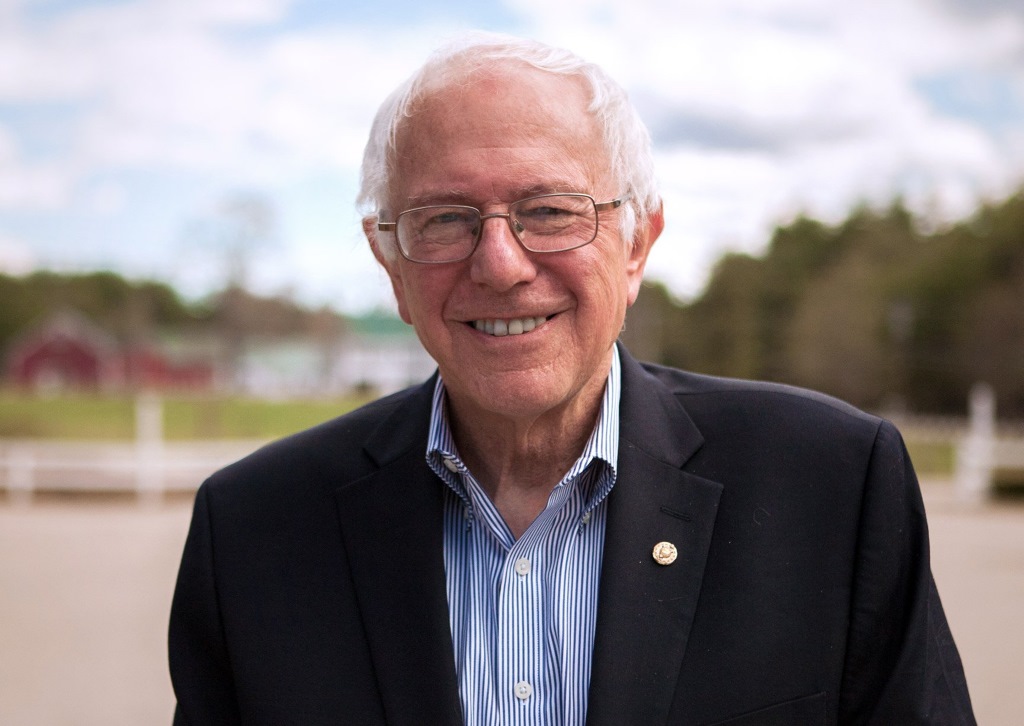Why Wisconsin’s Presidential Primary Matters
It’s a classic swing state that has usually voted for the winner.
“Given the election laws of Wisconsin, any kook – and I consider him a kook – can cause trouble. This man is being supported by extreme right-wing elements who are probably kookier than he is.”
Who said that, and when?
Hint: It has nothing to do with what some Republican and Democratic leaders have said about billionaire business executive Donald Trump, the leading candidate to become the Republican Party’s presidential nominee.
Answer: In 1964, then-Wisconsin Democratic Party Chairman J. Louis Hanson said that about Alabama Gov. George Wallace, who had decided to enter the state’s April Democratic presidential primary. Hanson’s quote is in Stephan Lesher’s 1994 book, George Wallace: American Populist.
That Wisconsin showing encouraged the Alabama governor, who had doubted he could do well in a Midwest state, to run a national campaign for president. Wallace’s strong primary vote also “effectively ended” the political career of Reynolds, Lesher wrote. LBJ was re-elected in November 1964, however.
On April 5, will presidential primary voters again surprise candidates, politicians nationally and pundits? Will many Wisconsin Democrats “feel the Bern” in next week Tuesday’s election, giving Bernie Sanders a boost against Hillary Clinton? And, will Ohio Gov. John Kasich and his chief Wisconsin cheerleader, former Gov. Tommy Thompson, build any anti-Trump firewall here?
Wisconsin has often been an important — and unpredictable — state in presidential primaries. Eight days before Wisconsin’s presidential primaries is a perfect time for a history lesson. Let’s look at the last 44 years of Wisconsin presidential primary results:
2012: Republicans – Statewide, Mitt Romney got 44%; Rick Santorum, 36%; Ron Paul, 11%; Newt Gingrich, 5%. In Milwaukee County, Romney got 51%; Santorum, 31%, and Paul, 10%. President Barack Obama won the Democratic primary.
2008: Democrats – Obama, 58%; Hillary Clinton, 41%. Republicans – John McCain, 54%; Mike Huckabee, 37%; Mitt Romney, 4%.
2004: Democrats – John Kerry, 39%; John Edwards, 34%; Howard Dean, 18%; Dennis Kucinich, 3%. President George W. Bush won the GOP primary.
2000: Democrats – Al Gore, 88%; Bill Bradley, 8%. Republicans – George W. Bush, 69%; McCain, 18%; Alan Keyes, 10%.
1996: Republicans – Bob Dole, 52%; Pat Buchanan, 33%; Steve Forbes, 5%. President Bill Clinton won the Democratic primary.
1992: Republicans – George H.W. Bush, 75%; Pat Buchanan, 16%. Democrats – Bill Clinton, 37%; Jerry Brown, 34%; Paul Tsongas, 21%.
1988: Democrats – Michael Dukakis, 47%; Jesse Jackson, 28%; Gore, 17%; Paul Simon, 4%. Republicans – George H.W. Bush, 82%; Pat Robertson, 7%.
1984: Democrats – Gary Hart, 44%; Walter Mondale, 41%; Jesse Jackson, 1%. President Ronald Reagan won Republican primary.
1980: Republicans – Reagan, 40%; George H.W. Bush, 30%; John Anderson, 24%. Democrats – Jimmy Carter, 56%; Ted Kennedy, 30%; Jerry Brown, 11%.
1976: Democrats – Carter, 36%; Mo Udall, 35%; Wallace, 12%; Henry Jackson, 6%. Republicans – Gerald Ford, 55%; Reagan, 44%.
1972: Democrats – George McGovern, 29%; Wallace, 22%; Hubert Humphrey, 20%; Ed Muskie, 10%; Henry Jackson, 7%; John Lindsay, 6%. President Richard Nixon won the Republican primary.
1968: Republicans – Nixon, 79%; Reagan, 10%; Harold Stassen, 5%. Democrats – McCarthy, 56%; President Johnson, 34%; Robert F. Kennedy, 6%.
“Wisconsin primary voters do an especially good job at landing on the eventual nominees,” says UW-Madison Political Science Professor Barry Burden.
“There are probably two reasons for this,” Burden added. “One is that Wisconsin has been a fairly representative state in terms of the demographics of its voters. The other reason is that the Wisconsin primary has often been about midway into the nomination calendar – just far enough forward to be consequential but far enough back to have only a few options to choose from.”
But Dave Wegge, a St. Norbert University political science professor, says it’s too easy to conclude that Wisconsin primary voters have “predictive powers.” When Wisconsin votes in April, Wegge notes, “Voters who were supporting one of the candidates, who they knew at this point was going to lose, may have decided to stay home and not vote unless there was a hotly contested Supreme Court race on the ballot.”
“With the exception of 2004 and 2008 [February primaries]… Wisconsin voters often have known who their party’s nominee was going to be by the time the Wisconsin primary rolled around,” Wegge adds.
State officials expect a very high turnout, about 40% of voters, on April 5. But, since the preferences of Wisconsin voters may matter once more, that could be low.
Steven Walters is a senior producer for the nonprofit public affairs channel WisconsinEye. Contact him at stevenscwalters@gmail.com
The State of Politics
-
RNC Brings Fame to Gen Z Party Leader
 Jul 15th, 2024 by Steven Walters
Jul 15th, 2024 by Steven Walters
-
Wisconsin’s Republican Roots Run Deep
 Jul 8th, 2024 by Steven Walters
Jul 8th, 2024 by Steven Walters
-
Feuding Supreme Court Justices Need a Break
 Jul 1st, 2024 by Steven Walters
Jul 1st, 2024 by Steven Walters























Great background on the Wallace campaign. Loved your story.
Isn’t this sad? “State officials expect a very high turnout, about 40% of voters, on April 5.” 40% is high turnout?
Ed, and that’s just 40% of REGISTERED voters, right?
Way to push the bernie agenda